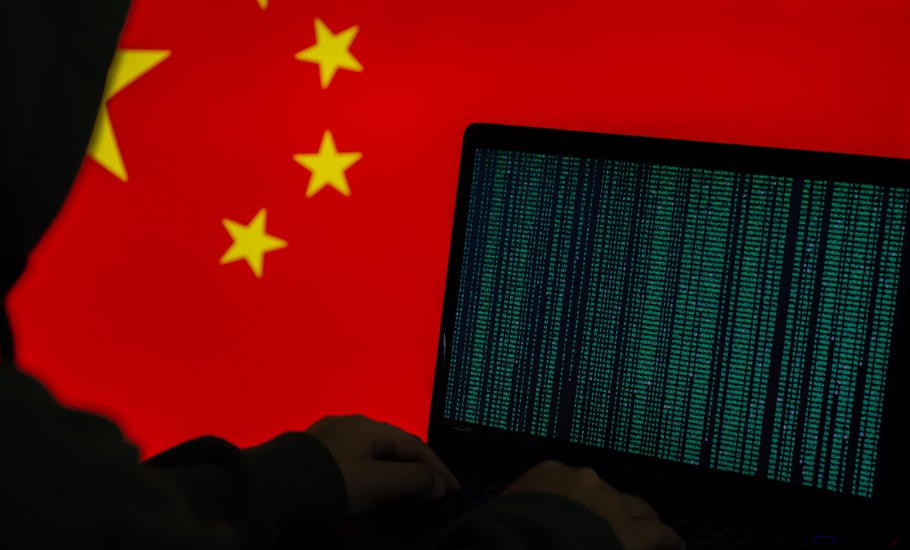
Under China watch: President, PM, CMs, defence officers, CJI, top industrialists and many more
A Shenzhen-based technology company in China with links to the Chinese government and the Chinese Communist Party is monitoring over 10,000 Indians and organizations in its global database of “foreign targets.”

A Shenzhen-based technology company in China with links to the Chinese government and the Chinese Communist Party is monitoring over 10,000 Indians and organizations in its global database of “foreign targets.”
An investigation by The Indian Express has revealed the range of targets in India identified and monitored in real time by Zhenhua Data Information Technology Co. Ltd is sweeping.
Records show that Zhenhua was registered as a company in April 2018 and set up 20 processing centres across countries and regions. It counts the Chinese government and military among its clients.
The Indian ‘targets’ include President Ram Nath Kovind and Prime Minister Modi Congress chief Sonia Gandhi and their families; chief ministers Mamata Banerjee, Ashok Gehlot and Amarinder Singh, Uddhav Thackeray, Naveen Patnaik and Shivraj Singh Chouhan.
The Cabinet Ministers include Rajnath Singh and Ravi Shankar Prasad, Nirmala Sitharaman, Smriti Irani and Piyush Goyal.
Former generals include Chief of Defence Staff Bipin Singh Rawat and at least 15 former chiefs of the Army, Navy and Air Force.
Justices are CJI Sharad Bobde and brother judge AM Khanwilkar.
The others are Lokpal Justice PC Ghose and Comptroller and Auditor General GC Murmu; start-up tech entrepreneurs Nipun Mehra, founder of Bharat Pe (an Indian payment app), and Ajay Trehan of AuthBridge, an authentication technology firm, and top industrialists Ratan Tata and Gautam Adani.
China calls itself a pioneer in using big data for ‘hybrid warfare.’
The Indians under the scanner of the Chinese firm also include bureaucrats in key positions; scientists and academics; journalists; actors and sportspersons; religious figures and activists. Scores of people accused of financial crime, corruption, terrorism, and smuggling of narcotics, gold, arms or wildlife are also being monitored, said the Express investigation.
When a correspondent visited the Shenzhen headquarters of Zhenhua Data and presented a list of questions which included those from The Indian Express, a company staffer, who declined to offer her name, said: “Sorry, these questions touch upon our trade secrets. It’s not convenient to disclose.”
Related news: Aadhaar for face detection: Good to nab criminals, bad for common man’s privacy
But responding to questions from The Indian Express, a Chinese Embassy source in Delhi said, “China has not asked and will not ask companies or individuals to collect or provide data, information and intelligence stored within other countries’ territories for the Chinese government by installing “backdoors” or by violating local laws.”
Over two months, the paper, using big-data tools, investigated the metadata from Zhenhua’s operations to extract Indian entities from the massive dump of log files that constituted what the company called Overseas Key Information Database (OKIDB). This database, using advanced language, targeting and classification tools. included hundreds of entries without any explicit markers.
It has entries from the United States, United Kingdom, Japan, Australia, Canada, Germany and the United Arab Emirates, was obtained through a network of researchers from a source connected to the company based in Shenzhen City in Guangdong province, south-east China.
Citing “risk and safety,” the source did not wish to be named.
Working through a professor in Vietnam, Christopher Balding, who has taught in Shenzhen, the source shared data with news organizations that include The Indian Express, The Australian Financial Review, Italy’s Il Foglio and The Daily Telegraph, London.
A detailed questionnaire sent to the email ids mentioned in the company’s website on September 1 has not elicited any response. In fact, the company took down its website on September 9, and it is no longer accessible.
“Every country does this in one way or the other, that’s the job of foreign intelligence. But using big data science and technology, Beijing has, clearly, taken it to the next level,” said Robert Potter, a Canberra-based cyber security, tech and data expert, who worked with the source to verify the electronic antecedents of the Zhenhua data set.
“Just looking at the range of people they are getting information on shows that they are very serious about the strategic value of hybrid warfare. These are their information assets and tracking them on a continuous basis, their work, their families, their movements, their leadership roles, their organizations is invaluable data that can be leveraged in countless ways,” Potter said.

